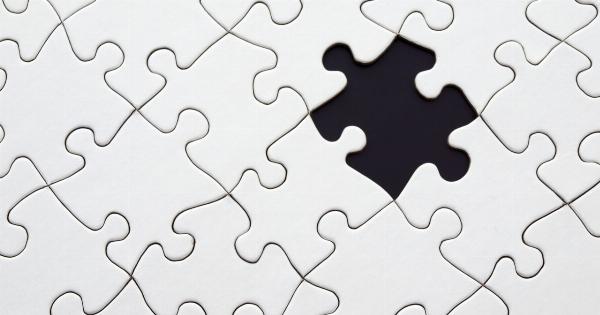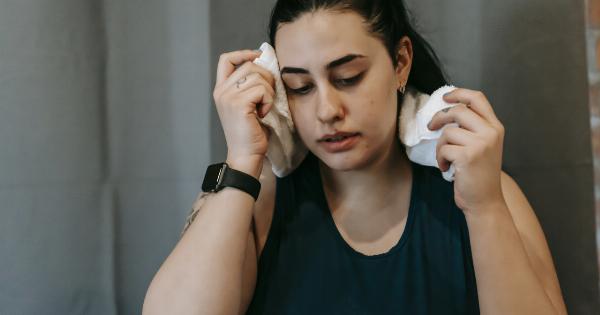Sexual desire is a complex and multifaceted aspect of human life that can be influenced by various factors. While it is a natural part of a healthy adult relationship, it is not uncommon for women to sometimes experience a loss of interest in sex.
This phenomenon can have detrimental effects on their relationships, self-esteem, and overall well-being. In this article, we will explore some of the common reasons why women may lose interest in sex and discuss potential solutions to address this issue.
Hormonal Imbalances
Hormonal imbalances can significantly affect a woman’s sexual desire. Fluctuations or abnormalities in hormone levels, such as low estrogen or testosterone, can lead to a decrease in libido.
Hormonal changes may occur during different stages of a woman’s life, including during menopause, pregnancy, or while taking certain medications. It is essential to consult with a healthcare professional to determine if hormonal imbalances are contributing to the loss of interest in sex and to explore potential treatment options.
Stress and Fatigue
Modern lifestyles often involve juggling multiple roles and responsibilities, leading to high levels of stress and fatigue.
Stress can negatively impact sexual desire, making it challenging for women to feel motivated or interested in engaging in sexual activities. Fatigue, both physical and mental, can further decrease libido and make it difficult to prioritize intimacy. To address this issue, it is crucial for women to focus on self-care, stress management techniques, and creating a healthy work-life balance.
Relationship Issues
The quality of a woman’s relationship and emotional connection with her partner plays a vital role in her sexual desire.
Relationship conflicts, unresolved issues, poor communication, or lack of emotional intimacy can lead to a loss of interest in sex. It is essential for couples to foster open and honest communication, engage in activities that promote emotional connection, and address any underlying relationship issues with the help of a therapist if necessary.
Body Image and Self-Esteem
Body image concerns and low self-esteem can significantly impact a woman’s sexual desire.
Societal pressures, media portrayals, and personal insecurities can create negative perceptions about one’s body, leading to a decreased sense of sexual confidence. Promoting body positivity, engaging in self-love practices, and seeking therapy or support groups can help improve body image and boost self-esteem, consequently enhancing sexual desire.
Medical Conditions and Medications
Certain medical conditions, such as chronic pain, depression, anxiety, or hormonal disorders, can contribute to a loss of interest in sex among women. Additionally, medications used to treat these conditions may also have sexual side effects.
Consulting with a healthcare professional to manage and treat any underlying medical conditions, as well as discussing alternative medications with fewer sexual side effects, can potentially alleviate the loss of sexual desire.
Lack of Variety and Novelty
Engaging in the same sexual routine repeatedly can lead to boredom and a loss of interest in sex. Lack of novelty and variety can make sexual experiences predictable and monotonous, decreasing excitement and desire.
Couples can explore introducing new activities, trying different positions or locations, experimenting with fantasies, or incorporating sex toys to enhance novelty and reignite sexual desire.
Mental Health and Emotional Well-being
Mental health conditions, such as depression, anxiety, or stress-related disorders, can negatively impact a woman’s sexual desire. These conditions may affect neurotransmitters in the brain and lead to a decrease in libido.
Seeking therapy, practicing self-care, and developing coping mechanisms to manage mental health concerns are essential steps towards enhancing emotional well-being and improving sexual desire.
Lifestyle Factors
Lifestyle factors, including a sedentary lifestyle, poor diet, excessive alcohol consumption, or substance abuse, can contribute to a loss of interest in sex.
Maintaining a healthy lifestyle by incorporating regular exercise, a balanced diet, and reducing excessive alcohol or substance consumption can promote overall well-being, positively impacting sexual desire.
Open Communication and Sexual Education
Open communication between partners about individual sexual needs, desires, and concerns is crucial in addressing a loss of interest in sex.
Sharing fantasies, exploring desires, and discussing any challenges openly can create a safe and supportive environment for both partners. Additionally, educating oneself about sexual health, understanding the complexities of female sexuality, and seeking professional guidance through books, workshops, or therapy can play a significant role in reclaiming sexual desire.
Psychological Support and Couples Therapy
Seeking psychological support, such as individual therapy or couples therapy, can be beneficial for women experiencing a loss of interest in sex.
Therapists can help identify underlying psychological factors contributing to the issue and provide strategies to overcome these challenges. Couples therapy can enhance communication, strengthen emotional connection, and assist in exploring ways to reignite sexual desire within the relationship.
Conclusion
Loss of interest in sex is a common issue that many women face at some point in their lives.
Understanding the potential reasons behind this phenomenon and exploring strategies to address it can significantly improve overall well-being and enhance sexual desire. It is important to approach this topic with patience, empathy, and open-mindedness, recognizing that each individual’s experience is unique.
By prioritizing communication, self-care, and seeking professional guidance if necessary, women can regain their sexual confidence and revitalize their intimate relationships.
























